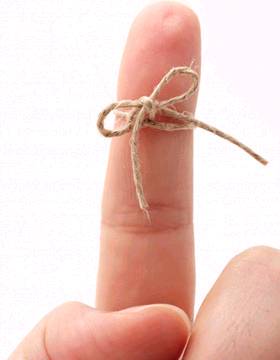Top 10 Weirdest Mental Conditions
Crazy comes in many different flavors. And let’s face it, some forms are funnier than others. Thankfully, some of the strangest mental conditions are the ones that don’t seem to occur too often.
Below are a few of the craziest of crazy―10 of the weirdest, most unique mental disorders.
 Objectum Sexuality. Folks with this disorder develop serious emotional attachments to inanimate objects. These feelings may even include sexual arousal brought on by certain objects. So you might want to keep people suffering from objectum sexuality away from your favorite teddy bear, lest your stuffed pal become the object of a very one-sided love affair. The size of the item being emoted upon isn’t always practical, either. One woman who suffers from this condition believes she is married to the Eiffel Tower. So perhaps it’s time to start worrying about your friend who talks incessantly about the love he has for his 50-inch plasma screen television.
Objectum Sexuality. Folks with this disorder develop serious emotional attachments to inanimate objects. These feelings may even include sexual arousal brought on by certain objects. So you might want to keep people suffering from objectum sexuality away from your favorite teddy bear, lest your stuffed pal become the object of a very one-sided love affair. The size of the item being emoted upon isn’t always practical, either. One woman who suffers from this condition believes she is married to the Eiffel Tower. So perhaps it’s time to start worrying about your friend who talks incessantly about the love he has for his 50-inch plasma screen television.
 Gamomania. If you’ve ever had a random stranger walk up to you and ask you to marry her, then it sounds like you’ve probably met someone suffering from gamomania, a mental disorder that causes people to make sudden, outrageous marriage proposals. If you accepted, then hopefully you two are happy. Although it’s unlikely, as your spouse undoubtedly brings home a new fiancé every day. Gamomaniacs have such an intense desire for marriage, they usually tend to lean towards a polygamous lifestyle.
Gamomania. If you’ve ever had a random stranger walk up to you and ask you to marry her, then it sounds like you’ve probably met someone suffering from gamomania, a mental disorder that causes people to make sudden, outrageous marriage proposals. If you accepted, then hopefully you two are happy. Although it’s unlikely, as your spouse undoubtedly brings home a new fiancé every day. Gamomaniacs have such an intense desire for marriage, they usually tend to lean towards a polygamous lifestyle.
Aboulomania. You know that conversation you have sometimes that goes like, “What do you want to have for dinner?” “I don’t know, what do you want to have?” Multiply that times a thousand, and you can imagine what living with someone who suffers from aboulomania could feel like. This mental disorder causes extreme indecisiveness, which must be really annoying for not only the sufferers, but for their friends and loved ones. It does make you wonder how an aboulomaniac can ever leave the house in the morning, since such a severe inability to make a decision on anything must make picking out the day’s outfit even more challenging than it already seems to be for so many non-sufferers.
Doromania. If you don’t have a friend who has been diagnosed with doromania, perhaps you should hop on down to your local psychiatric ward and find one. Doromania in an obsession with giving gifts, which really makes the illness sound less like a horrible disorder and more like a characteristic of a wonderful friend or a favorite aunt. This is assuming, of course, that your favorite doromaniac actually gives good gifts, and not just random items from the dollar store or cans of cat food wrapped up with a bow.
 Alien Hand Syndrome. Folks with alien hand syndrome apparently lose control over the actions of one of their own hands. But the hand doesn’t just hang there limply. It takes on a life of its own, seemingly under its own power, regardless of what the hand’s owner wills it to do. While alien hand syndrome allows you to feel all sensations in your hand like normal, you just can’t tell it what to do anymore. It seems like having this bizarre particular mental illness could come in handy if you ever need an excuse for slapping someone in the face or shoplifting.
Alien Hand Syndrome. Folks with alien hand syndrome apparently lose control over the actions of one of their own hands. But the hand doesn’t just hang there limply. It takes on a life of its own, seemingly under its own power, regardless of what the hand’s owner wills it to do. While alien hand syndrome allows you to feel all sensations in your hand like normal, you just can’t tell it what to do anymore. It seems like having this bizarre particular mental illness could come in handy if you ever need an excuse for slapping someone in the face or shoplifting.
Cotard Syndrome. People with Cotard syndrome take hypochondria to the next level. Rather than just think they are sick, people with this illness believe they are dead. Well, sometimes they just believe they have lost some of their major organs, but it seems like that would quickly lead to death anyway. If you know someone who is still walking around looking like a zombie months after Halloween is over, your friend may be suffering from this sickness. It’s best to just ignore him, rather than shattering his belief that he has ceased to exist.
 Capgras Delusion. If you travel home to visit family and it feels like your mother has been replaced by an entirely new person, you may be right. Or you may have been stricken by the Capgras delusion. This form of schizophrenia causes people to think their loved ones have been replaced by imposters. You could seek help from a medical professional, or you could just go with the flow, enjoy making a new friend and welcome the influx of a fresh presence at family dinners.
Capgras Delusion. If you travel home to visit family and it feels like your mother has been replaced by an entirely new person, you may be right. Or you may have been stricken by the Capgras delusion. This form of schizophrenia causes people to think their loved ones have been replaced by imposters. You could seek help from a medical professional, or you could just go with the flow, enjoy making a new friend and welcome the influx of a fresh presence at family dinners.

 The Jumping Frenchmen of Maine. If you suffer from this wonderfully named illness, it means that you are likely to jump up and obey any command instantly, even if the command asks you to hit your mother in the face. Essentially a physical form of Tourette’s, Jumping Frenchmen is a rare but useful illness. If you’re looking for an always willing participant who will react quickly to your every command without question or hesitation, then seek out someone with this affliction. Just remember, with great power comes great responsibility … and enjoyment.
The Jumping Frenchmen of Maine. If you suffer from this wonderfully named illness, it means that you are likely to jump up and obey any command instantly, even if the command asks you to hit your mother in the face. Essentially a physical form of Tourette’s, Jumping Frenchmen is a rare but useful illness. If you’re looking for an always willing participant who will react quickly to your every command without question or hesitation, then seek out someone with this affliction. Just remember, with great power comes great responsibility … and enjoyment.
 Body Integrity Identity Disorder. Ever felt the strong desire to cut off one of your own limbs? Of course not. That would be crazy. Or more specifically, that would be body integrity identity disorder. People with BIID truly believe that removing one of their healthy body parts would make their lives better. Luckily, most BIID sufferers do not remove their own limbs or have luck finding doctors who will do so for them. Instead, they often just pretend they are missing a leg or an arm, which seems difficult to do, and they should be applauded for sticking to their disorders with such dedication.
Body Integrity Identity Disorder. Ever felt the strong desire to cut off one of your own limbs? Of course not. That would be crazy. Or more specifically, that would be body integrity identity disorder. People with BIID truly believe that removing one of their healthy body parts would make their lives better. Luckily, most BIID sufferers do not remove their own limbs or have luck finding doctors who will do so for them. Instead, they often just pretend they are missing a leg or an arm, which seems difficult to do, and they should be applauded for sticking to their disorders with such dedication.























